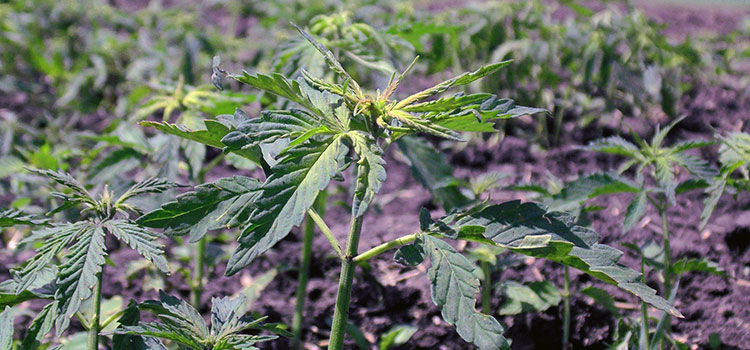It’s been nearly two months since mainstream media outlets and several cannabis publications published headlines claiming that the Drug Enforcement Administration (DEA) was rescheduling cannabidiol (CBD) into a Schedule 1 substance and that some serious, Drug War-era crackdowns were coming.
We reported then, and stand by our coverage, that this is not the case. The DEA did not target the hemp CBD industry but instead created a new tracking code for the agency to categorize cannabis concentrates separately from flower, plants, and other products. Confusing verbiage in the rule change, which took effect January 13, led to the widely-reported misunderstanding; however, the fact remains that CBD from cannabis has always been considered a Schedule 1 substance under the Controlled Substances Act.
It wasn’t until the 2014 Congressional Farm Bill that industrial hemp (which, under federal law, must contain less than 0.3 percent THC) was legalized. Lawmakers accomplished this not by removing hemp or CBD from the Controlled Substances Act, but by prohibiting the Department of Justice from spending funds on prosecuting state-legal hemp operations, which laid the groundwork for the CBD hemp market. Only Congress — not the DEA — has the power to undo that act.
Attorney Craig Brand, founder of the international firm Ganja Law, is a 26-year veteran of narcotics case law. A recent memo from Brand’s firm, published in an email to their followers by Folium Biosciences, a client of Ganja Law, echoed the sentiments of legal experts from around the country — that the threat of a DEA crackdown on hemp CBD had been blown wildly out of proportion.
In a recent interview with Ganjapreneur, Brand said that, instead of worrying about the DEA, hemp entrepreneurs should be more concerned about actions taken by the Food and Drug Administration (FDA). “I don’t necessarily see the DEA as the villain of the [CBD] industry,” Brand said. “The bigger danger is, when it does become legal, what is the FDA going to do with it?”
The real dangers facing hemp-derived CBD
According to Brand, there are two major issues that the FDA will likely look to as they regulate hemp-derived CBD. These are the irresponsible “bad apples” who are currently participating in the industry, and the eventuality of a corporate takeover by everyone’s least-favorite agricultural monstrosity, Monsanto (or a similar corporate powerhouse).
Though hemp-based CBD is normally beyond the DEA’s scope of influence, rule-breaking individuals have gained the agency’s attention by producing, selling, and purchasing “hemp,” “hemp oils,” or extracts which contain an illegal amount of THC. Oftentimes, these are simply cases of bad luck or poor foresight; other times, however, there are troublemakers who are purposefully trying to circumvent federal drug laws.
Sadly, these instances support the unfortunate perception that CBD entrepreneurs are would-be cannabis pushers. This could ultimately worsen the industry’s image and lead to even harsher restrictions. “The industry has to regulate itself,” Brand said. “If you do things right, if you self-police, you shouldn’t have to look over your shoulder or require government intervention.”
Brand and the Ganja Law team have created legal policies, compliance protocols, and safeguards for the international cannabis and hemp law practice — however, concerns about a corporate takeover of the CBD marketplace don’t come with a solution as simple as just obeying the rules.
Instead, Brand expects regulators to, “let everybody who has fought so hard for legalization finish the fight, and then Monsanto — or companies like Monsanto — will create their own strains, which will be ushered through by the FDA.” Brand says that he and his team have been preparing for this fight for some time.
Big Pharma has undoubtedly been eyeing cannabinoid-based medicines throughout their recent, formative years, and Brand argues that both the hemp and cannabis industries should be extra wary of industry developments involving Big Pharma when federal prohibition finally crumbles. “If we don’t solidify the rules and players now, be careful what you wish for should cannabis and hemp gain federal approval and we haven’t sidelined those big businesses that have been quietly lurking in the wind.”
“Monsanto is already growing various strains of hemp,” he said. “You don’t have to be a rocket scientist to figure out their next move and our forthcoming fight to remain on the playing field.”
Get daily cannabis business news updates. Subscribe
End
